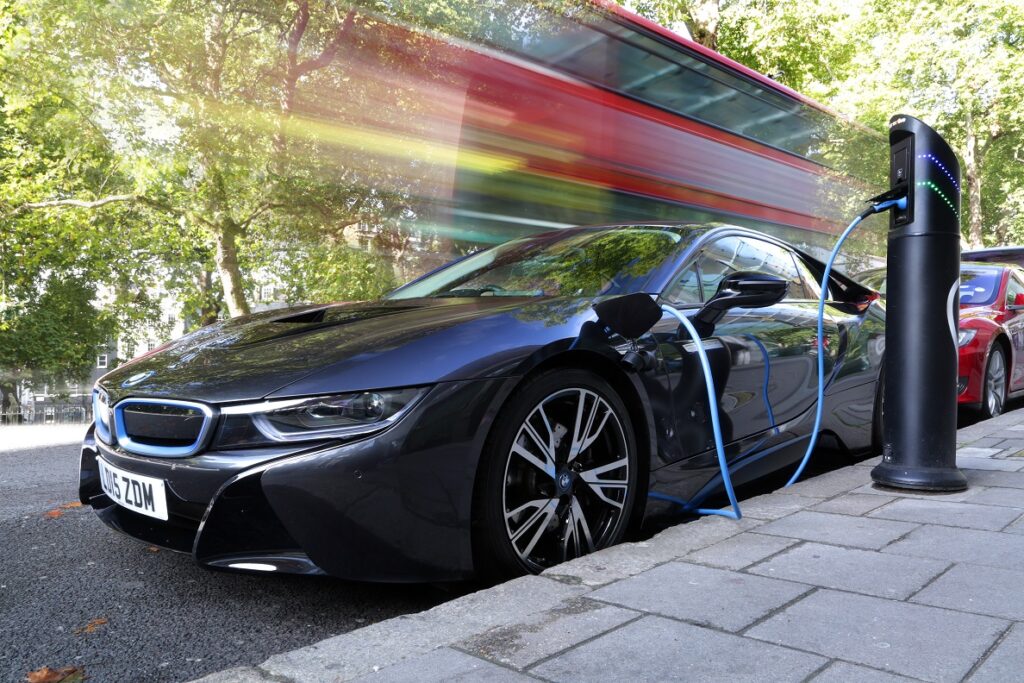The Society of Motor Manufacturers and Traders (SMMT) has reported that March 2024 saw the most new battery electric vehicle (BEV) registrations for the month since 2019.
The 10.4% rise in registrations from February marks the 20th consecutive month of growth for the UK’s adoption of new EVs.
In what is typically the busiest month of the year due to the new numberplate, 317,786 new cars reached the road, which, despite being the best-performing March since 2019, is still -30.6% less than pre-pandemic levels.
Growth was again driven by fleet investment, up 29.6%, as the sector continues to recover from previous years’ constrained supply.
Registrations by private buyers fell by -7.7%, with a notable economic backdrop of low growth, weak consumer confidence and high-interest rates.
Positive growth
This March follows a significantly strong February, which saw the highest volume of BEV sales for the month in 20 years, according to SMMT.
The UK EV market saw its strongest February since 2004, with the number of new car registrations increasing by 14% to 84,886 units.
Moreover, the UK is expanding its domestic gigafactory portfolio, with the reported news of Chinese battery manufacturer EVE Energy being in talks over a £1 billion investment into a gigafactory on the outskirts of Coventry.
The 5.7 million square foot facility is initially expected to have an output of 20GWh, which would subsequently be ramped up to 60GWh.
According to the Sunday Times, the Chinese company is thought to be considering committing an initial £1.2 billion to the project, which would contribute to the creation of up to 6,000 jobs in partnership with local councils and Coventry Airport.
Looming hindrances
It is worth noting that while BEV registration volumes were at their highest ever recorded levels, market share fell by one percentage point from the same month last year, down to 15.2%.
The SMMT argued that temporarily halving VAT on BEVs, revising the threshold for the expensive car supplement on Vehicle Excise Duty next April, and abolishing the ‘pavement penalty’ on public EV charging by equalising VAT rates to 5% in line with home charging would significantly benefit consumers, helping more of them move to zero-emission vehicles sooner.
These qualms have been raised previously, with campaign group FairCharge having written an open letter alongside E.ON and Auto Trader to chancellor of the exchequer Jeremy Hunt ahead of the Spring Budget to advocate for a public charging VAT reduction.
The Value Added Tax (VAT) applied to EV charging in public stands at 20%, heavily contrasting with the 5% applied to private charging.
The reduced rate of VAT is known as the ‘de minimis’ provision, as detailed by HM Revenue and Customs (HMRC) in 2021. It applies if the electricity supply to a person’s house or building is ongoing and less than 1,000kW hours per month.
FairCharge challenged the quadrupled VAT with this letter, which was co-signed by the likes of Jaguar Land Rover (JLR), Stellantis, Polestar, Autocar Magazine, Greenpeace, Transport & Environment, Zapmap and the AA.
Auto Trader has calculated that drivers charging off-peak at home could save £865 annually compared to internal combustion engine vehicles but that a driver using public rapid chargers would pay £264 more over a year.
Mike Hawes, SMMT chief executive, said: “Market growth continues, fuelled by fleets investing after two tough years of constrained supply. A sluggish private market and shrinking EV market share, however, show the challenge ahead.
“Manufacturers are providing compelling offers, but they can’t single-handedly fund the transition indefinitely. Government support for private consumers – not just businesses and fleets – would send a positive message and deliver a faster, fairer transition on time and on target.”





